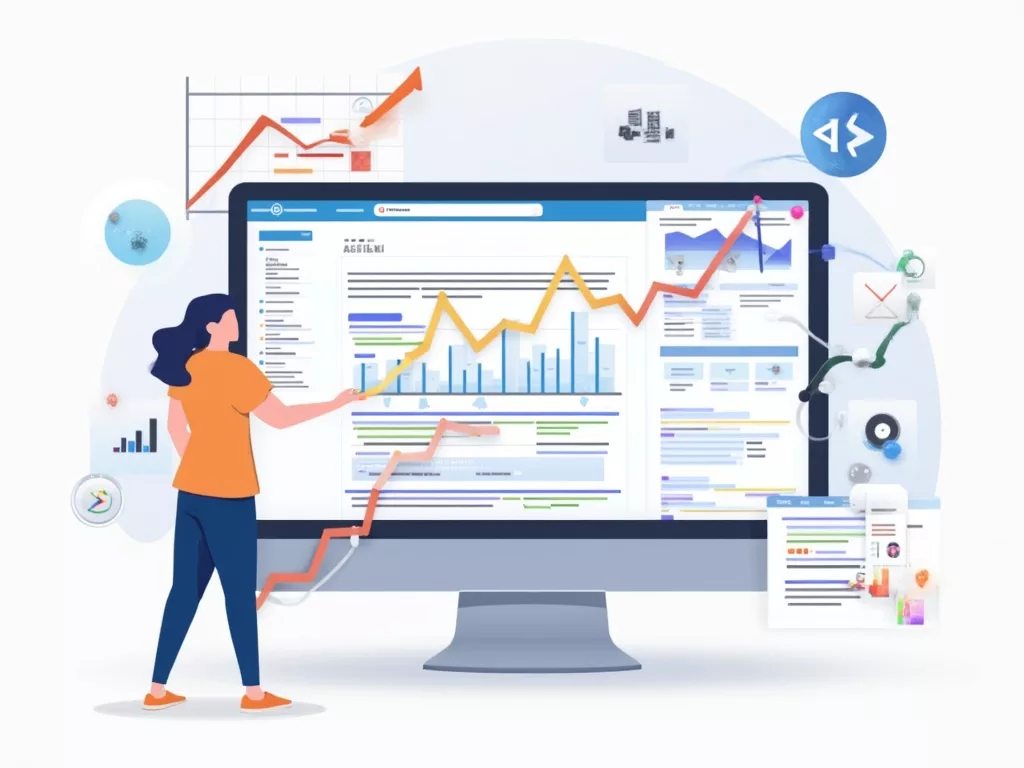On-page SEO is the foundation of any successful SEO strategy. It refers to the optimization techniques applied directly to individual web pages to improve their ranking on search engine results pages (SERPs). On-page SEO goes beyond keyword placement and includes factors like content quality, metadata, internal linking, and user experience. In a competitive digital environment, mastering on-page SEO is crucial for enhancing visibility and driving traffic to your website.
1. Why On-Page SEO is Crucial for Your Website
On-page SEO is critical because it signals to search engines what your page is about. Properly optimized pages make it easier for search engines like Google to crawl, index, and rank your content. When done correctly, on-page SEO helps ensure your site appears in relevant search results, bringing organic traffic that aligns with your target audience.
- Keyword Relevance: One of the most important aspects of on-page SEO is using the right keywords. These are the words and phrases your target audience is searching for. By naturally integrating them into your content, headers, and meta descriptions, search engines can better understand what your page offers.
- Better User Experience (UX): On-page SEO goes hand-in-hand with creating a great user experience. Optimized pages are faster, easier to navigate, and more engaging for users. This translates into lower bounce rates and longer visit durations, both of which contribute to higher search rankings.
- Improved Click-Through Rates (CTR): Properly optimized title tags and meta descriptions make your pages more appealing in search results. When users see relevant, well-written snippets, they are more likely to click on your website, which boosts traffic and improves SEO rankings.
2. Key Elements of On-Page SEO
Optimizing your website for search engines requires attention to several key factors that work together to boost your rankings. These elements include both technical aspects and content-based strategies.
- Title Tags and Meta Descriptions: Your title tag is one of the first things users and search engines see. It should include your target keyword and be concise, engaging, and descriptive. Similarly, the meta description gives users a brief summary of your page. It should be compelling and contain relevant keywords to encourage clicks.
- Headings and Subheadings: Properly structured headings (H1, H2, H3) help organize your content and make it easier for search engines to understand its hierarchy. Use your main keyword in the H1 tag, while supporting keywords can be used in subheadings.
- URL Structure: Clean and descriptive URLs are another essential part of on-page SEO. Shorter URLs that contain relevant keywords improve usability and search rankings. Avoid unnecessary words and use hyphens to separate words for better readability.
- Internal Linking: Linking to other pages on your website helps search engines discover your content and creates a logical flow for users. Strategic internal linking also helps distribute link equity throughout your site, boosting the SEO value of other pages.
3. Optimizing Content for On-Page SEO
Content is king in the world of SEO, and high-quality, relevant content is essential for on-page optimization. Search engines prioritize websites that offer valuable information, making content optimization a key factor in improving rankings.
- Keyword Placement: It’s not enough to simply have keywords in your content; they need to be placed strategically. Incorporate your main keyword in the first paragraph, headings, and naturally throughout the text, without overstuffing.
- Content Length and Depth: Longer, in-depth articles tend to perform better in search rankings. Create comprehensive content that thoroughly covers the topic and provides actionable insights for readers.
- Multimedia Elements: Including images, videos, and infographics can enhance user engagement and improve the time users spend on your site. Make sure to optimize images with relevant alt text and file names for better SEO.
Conclusion
On-page SEO is the backbone of any successful SEO strategy. By focusing on elements like keyword optimization, content quality, metadata, and user experience, you can significantly improve your website’s visibility in search engine rankings. When done right, on-page SEO helps you attract more organic traffic, engage users, and build a site that performs well for both search engines and visitors alike.
